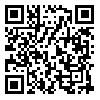دوره 5، شماره 2 - ( 11-1398 )
جلد 5 شماره 2 صفحات 90-79 |
برگشت به فهرست نسخه ها
Download citation:
BibTeX | RIS | EndNote | Medlars | ProCite | Reference Manager | RefWorks
Send citation to:



BibTeX | RIS | EndNote | Medlars | ProCite | Reference Manager | RefWorks
Send citation to:
Babaie J, Golizadeh M, Doshmangir L. Experience of Primary Health Care Workers’ Involvement in Response to Arasbaran Twin Earthquakes in 2012. Health in Emergencies and Disasters Quarterly 2020; 5 (2) :79-90
URL: http://hdq.uswr.ac.ir/article-1-266-fa.html
URL: http://hdq.uswr.ac.ir/article-1-266-fa.html
Experience of Primary Health Care Workers’ Involvement in Response to Arasbaran Twin Earthquakes in 2012. فصلنامه سلامت در حوادث و بلایا. 1398; 5 (2) :79-90
چکیده: (4622 مشاهده)
Background: One of the most important concerns after disasters is managing their health consequences. This study examines the experiences of Primary Healthcare Workers (PHCWs) who involved in managing the health effects of the Arasbaran twin earthquakes of August 2012.
Materials and Methods: This study was conducted using a qualitative approach. Data were collected through semi-structured deep interviews. The collected data were analyzed by content analysis using the code extraction of subthemes and themes. Study participants included health managers, healthcare workers, and individuals who received the health services in response to the health effects of the Arasbaran twin earthquakes. A total number of 16 participants were interviewed. The study sample was selected purposefully.
Results: Interview analysis provided 14 subthemes and five main themes, including the lack of preparedness, the challenges of the PHCWs’ contributions in providing healthcare, the inessentiality of the PHCWs’ involvement in health response, the continuity of healthcare by the PHCWs, and the facilitation of coordination.
Conclusion: The involvement of the PHCWs in managing the health effects of the earthquakes was a successful experience that could prevent health problems. Challenges faced during this experience were mainly caused by the lack of preparedness.
Materials and Methods: This study was conducted using a qualitative approach. Data were collected through semi-structured deep interviews. The collected data were analyzed by content analysis using the code extraction of subthemes and themes. Study participants included health managers, healthcare workers, and individuals who received the health services in response to the health effects of the Arasbaran twin earthquakes. A total number of 16 participants were interviewed. The study sample was selected purposefully.
Results: Interview analysis provided 14 subthemes and five main themes, including the lack of preparedness, the challenges of the PHCWs’ contributions in providing healthcare, the inessentiality of the PHCWs’ involvement in health response, the continuity of healthcare by the PHCWs, and the facilitation of coordination.
Conclusion: The involvement of the PHCWs in managing the health effects of the earthquakes was a successful experience that could prevent health problems. Challenges faced during this experience were mainly caused by the lack of preparedness.
| بازنشر اطلاعات | |
 |
این مقاله تحت شرایط Creative Commons Attribution-NonCommercial 4.0 International License قابل بازنشر است. |





